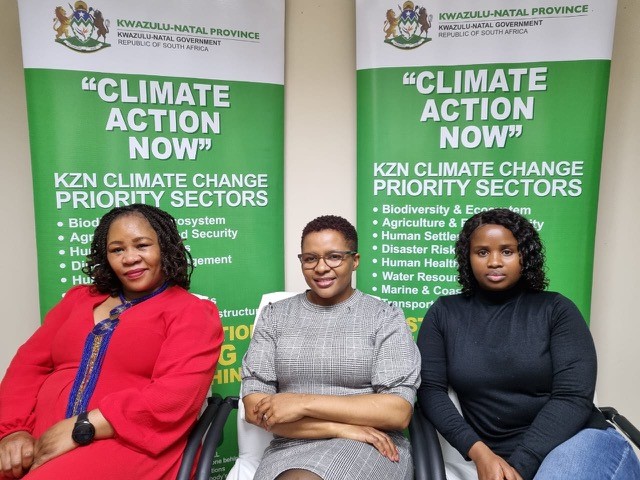EMPOWERING AND STRENGTHENG WOMEN FOR CLIMATE CHANGE ADAPTATION
- Home
- News Articles
- EMPOWERING AND STRENGTHENG WOMEN FOR CLIMATE CHANGE ADAPTATION
EMPOWERING AND STRENGTHENG WOMEN FOR CLIMATE CHANGE ADAPTATION
South Africa observes August as a focal month to commemorate a women’s march that took place in 1956 to fight gender equality. Challenges of gender inequality persist to exist to date across many sectors, including the natural resource governance. This article seeks to give a summary of the impacts of climate change on women and discusses opportunities for mainstreaming gender equality into climate change mitigation and adaptation policies. Gender inequality coupled with the climate crisis is one of the greatest challenges of our time. It poses threats to ways of life, livelihoods, health, safety and security for women and girls around the world.
IMPACTS OF CLIMATE CHANGE ON WOMEN
Women are increasingly being seen as more vulnerable than men to the impacts of climate change, mainly because they represent the majority of the world's poor and are proportionally more dependent on threatened natural resources. When climate change-related disasters such as droughts and floods occur, it is typically women and girls that fight a unique battle to live and recover from the effects. This is due to the fact that women and girls already experience discrimination and inequities based on their gender, which further worsen and intensify during times of crisis.
However, while women are more vulnerable to climate change impacts, they are also effective agents of change in relation to both mitigation and adaptation. Women often have a strong body of knowledge and expertise that can be used in climate change mitigation, disaster reduction and adaptation strategies. Furthermore, women’s responsibilities in households and communities as stewards of natural and household resources, positions them well to contribute to livelihood strategies adapted to the changing environment.
GENDER SENSITIVE RESPONSES TO CLIMATE CHANGE
Mainstreaming gender equality into climate change responses, should ensure that mitigation and adaptation efforts systematically and effectively address gender-specific impacts of climate change; financing mechanisms are flexible enough to reflect women’s priorities and needs; and technological developments related to climate change consider women’s specific priorities, needs and roles, and make full use of their knowledge and expertise, including indigenous knowledge and traditional practices. The consultation and participation of women in climate change initiatives must be ensured, and the role of women’s groups and networks strengthened.
The KZN Climate Change and Sustainable Development Council, chaired by the Premier, has done exactly that. There is a specific representation for the women’s voice in the Council through women coming from various institutions and community formations.
Women can be critical agents of environmental conservation, sustainable development and adaptation to climate change impacts because of their relationship with the environment. Empowered women will continue to fight for Mother Earth and will contribute to finding adaptive solutions to the climate crisis.
CAPTION : Women championing climate change in the Department: Mbali Goge - Control Environmental Officer: Climate Change Management, Noloyiso Walingo - Director: Climate Change Management, Nomakazi Nogqala – Intern: Climate Change Management.

